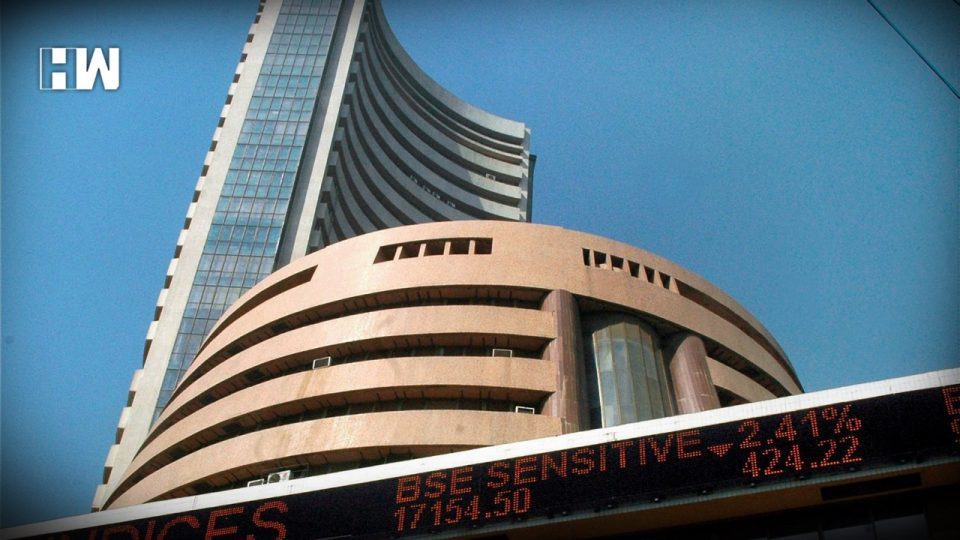Mumbai | Market benchmark BSE Sensex on Monday plummeted by 793 points or 2 percent, its biggest single-day loss this year so far, due to heavy selling in financial, auto and oil stocks as investors turned edgy after the twin impact of budget tax proposals and a global selloff.
The 30-share Sensex tanked 907 points in the intra-day trade before settling at 38,720.57 points, showing a sharp loss of 792.82 points or 2.01 percent. The broader Nifty of the NSE tanked 252.55 points, or 2.14 percent, to close at 11,558.60 points.
After the budget presentation on Friday, the market capitalisation of BSE-listed firms dived Rs 5,61,772.64 crore. Sensex had dropped 394.67 points on Friday. Among the Sensex scrips, Bajaj Finance fell the most by 8.18 percent, followed by ONGC at 5.43 percent.
Auto stocks Hero MotoCorp, Maruti, Tata Motors and Bajaj Auto took a beating on reports that automakers have resorted to production cuts after declining sales.
Hero MotoCorp declined 5.3 percent, Maruti by 5.2 percent, Tata Motors by 3.4 percent and Bajaj Auto by 2 percent.
“The Budget failed to revive bullish sentiments among the investor community. The disappointment was aggravated as the market’s expectations of a stimulus package to revive growth were not met. Further, expectations of weak earnings growth in the coming quarter are dampening sentiments,” Sunil Sharma, the Chief Investment Officer of Sanctum Wealth Management commented.
Among financial stocks, HDFC dropped by 0.77 percent, SBI by 4.14 percent and Axis Bank by 2.84 percent.
ONGC dropped 5.43 percent, L&T by 4.3 percent and Reliance Industries by 0.85 percent, dragging the index into the negative territory.
All the sectoral indices ended in the red, with BSE capital goods, realty, auto, power, industrials, finance, bankex, oil and gas, utilities and metal index falling up to 3.78 percent. Broader BSE midcap and smallcap indices followed the benchmark, cracking up to 2.46 percent. Yes Bank, HCL Teck and TCS, however, bucked the trend to gain up to percent.
The Union Budget proposal to raise the public shareholding threshold to 35 per cent from the current 25 per cent and higher tax incidence for foreign portfolio investors and high networth individuals continued to spook domestic investors, traders said.
Other tax proposals like charge on share buyback also piled on the investor sentiment. A heavy selloff in global markets after the positive US job data hit expectations of a rate cut by the Federal Reserve weighed on the investors.
Asian markets ended significantly lower with the Shanghai Composite Index ending down by 2.58 percent lower, Hang Seng by 1.54 percent, Nikkei by 0.98 percent and Kospi tumbling 2.20 percent. Equities in Europe were also trading lower in their respective early sessions.
“Today’s market fall has been due to a combination of global and domestic factors. Globally, a positive payroll expansion- ahead of estimations, has led to a fear of anticipated Fed rate cut not coming through. Domestically, proposals in the budget to increase in minimum public shareholding levels to 35 percent was a dampener along with 20 percent tax on share buy-backs,” said Pradeep Kesavan, Senior VP, Equity Strategy, Institutional Equities, Elara Capital.
Overall market breadth was negative as 1,953 scrips declined on BSE while 571 advanced. On the currency front, the Indian rupee depreciated 30 paise to 68.72 against the US dollar which gained strength after the US job data. Meanwhile, the global oil benchmark Brent crude futures were trading 0.12 percent higher at 64.31 per barrel.
As an independent media platform, we do not take advertisements from governments and corporate houses. It is you, our readers, who have supported us on our journey to do honest and unbiased journalism. Please contribute, so that we can continue to do the same in future.

